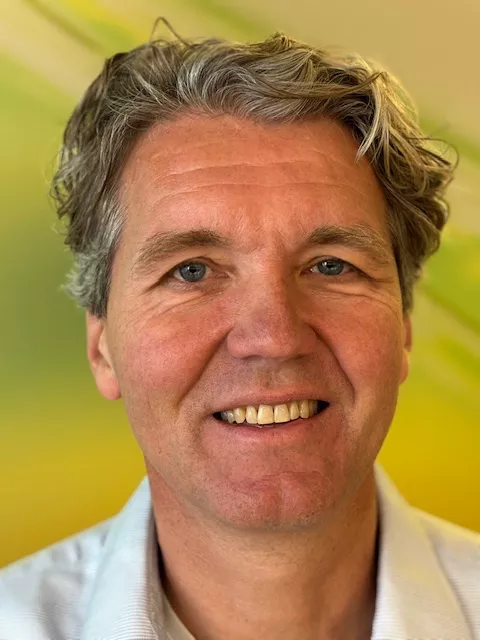
Khondrion is focused on the development of innovative therapies for primary mitochondrial diseases.
Khondrion is a clinical-stage biopharmaceutical company discovering and developing therapies targeting primary mitochondrial disease. Based on proprietary science and a deep understanding of mitochondria in health and disease, the company is advancing its lead drug candidate sonlicromanol. The compound is initially being investigated in adult Primary Mitochondrial Disease patients as genetically confirmed by the m.3243A>G PMD mutation in the mitochondrial DNA associated with Classic MELAS syndrome and MIDD syndromes, CPEO and mixed phenotypes. This mutation is the most frequently observed mutation associated with primary mitochondrial disease. Based on the favorable benefit-risk profile of sonlicromanol observed in the clinical studies performed so far, Khondrion is advancing the preparations of a registrational Phase 3 study.
Sonlicromanol and other compounds from Khondrion’s proprietary library have the potential to be developed for a wide range of other diseases and conditions affecting normal mitochondrial function and Khondrion is progressing preclinical R&D in several promising areas. To accelerate the discovery and development of its potential medicines for mitochondrial diseases, Khondrion collaborates with patient organisations worldwide as well as its global clinical and academic network.

Khondrion was founded by mitochondrial disease expert Prof. Jan Smeitink. Jan has devoted his entire career to the care of mitochondrial disease patients and the study of mitochondria in health and disease, until recently via his long-term affiliation with the Radboud University Medical Center in Nijmegen, The Netherlands. Khondrion’s mission is to develop disease-modifying treatments for this high impact, often early, fatal group of (ultra) rare disorders.
Khondrion is located in Nijmegen, The Netherlands.


Ir. Jasper Levink has over a decade of experience in business development and finance in biotech. He is a serial entrepreneur and seasoned executive. He previously was Partner and Managing Director at ttopstart, a consulting company that supports life sciences companies. In addition, he has held various business development roles in biotech, including: (1) CBO at LenioBio, where he built the pharma business, established key partnerships with large pharma and CEPI, and (2) heading the in-licensing activities of an (undisclosed) Dutch late-stage biotech company. In his various roles he has supported and led funding rounds (public and private) that together exceed € 1bn and secured two exits as an entrepreneur.



Herma joined Khondrion as a scientist in 2016. She is responsible for overseeing Khondrion’s broad preclinical development strategy and for managing the day-to-day operations of the company’s laboratories. Herma is a specialist in medical biology with extensive experience in mitochondrial biochemistry having previously held positions at the University of Amsterdam, The Netherlands, the Institute of Medical Technology in Tampere, Finland, and the Radboud University Medical Center, Nijmegen, The Netherlands. She has a PhD in Biochemistry from the University of Amsterdam, The Netherlands, and has contributed to over 40 publications on mitochondrial function and disease.



With more than 25 years’ experience in patient care, diagnostics, counselling and research of patients suffering from mitochondrial disease, Jan is the Founder of Khondrion and Chairman of the company's Supervisory Board. As well as being the CMO of Khondrion, he concurrently holds a position as Professor Emeritus in Mitochondrial Medicine at the Radboud University, The Netherlands. Until May 2020, he coordinated the Radboud Center for Mitochondrial Medicine, which he founded in 1996, at the Radboud University Medical Center. He has coordinated and has been actively involved in many multi-centre nationally and internationally granted Mitochondrial Medicine consortia, published more than 400 peer-reviewed scientific papers, and supervised more than 25 PhD students. Several of his PhD students have become Professors in international medical research centres. In 2016, Jan was honoured with the highly prestigious Knight in the Order of the Dutch Lion, in view of his services to mitochondrial medicine.




Erik van den Berg is the CEO and board member of Memo Therapeutics AG, former CEO and current board member of AM-Pharma and holds chairmanships in Step Pharma and TargED Therapeutics. Erik brings over 25 years of industry experience and a proven track record in leadership and company growth and has orchestrated over 20 transactions and partnerships, notably a $600 million alliance with Pfizer, a $290 million partnership with Kyowa Kirin, and has secured over $500 million in equity and debt financings for biotech firms from seed to IPO. Erik holds an MSc in Chemistry from the University of Utrecht and an MBA from Manchester Business School.



Wanja is a strategic business leader with extensive experience driving growth, transformation, and commercial success in technology and media. Formerly Managing Director at DPG Media and Board Member at Awin Benelux (Axel Springer), she has led digital transformation initiatives, developed new revenue streams, and forged high-value partnerships. With a Master’s graduate in Econometrics (University of Amsterdam) and member of the SER Topwomen, she brings sharp analytical acumen and a proven ability to scale businesses.



François, Partner at Ramphastos since 2022, brings high-level expertise in tax structuring, financial oversight, and portfolio management. Previously a Partner at Loyens & Loeff, he advised on complex cross-border transactions in industrials, real estate, and private equity. He holds degrees in Business Economics & Tax Law (Maastricht University) and European Tax Studies (Erasmus University Rotterdam), providing a strong foundation for strategic investment execution.



Willem is an accomplished biotech executive, currently CEO of Pluvia Biotech, developing first-in-class oral pharmacological chaperones for Phenylketonuria. His leadership track record spans senior roles at Intercept Pharmaceuticals, MyoKardia, Amicus Therapeutics, Prosensa Therapeutics, and to-BBB, with expertise in international commercialization and strategic growth. Holding an MBA (NIMBAS) and an MSc in Medical Biology (Utrecht University), Willem also mentors future life sciences leaders through The Termeer Foundation.



Jan is a globally recognized leader in mitochondrial medicine with a track record of scientific and clinical impact. With over 430 peer-reviewed publications and more than 100 keynote lectures worldwide, he has driven landmark research programs, secured major EU grants, and built a robust global network spanning academia, industry, and patient organizations. Under his leadership, Khondrion has advanced its lead asset, sonlicromanol, through four successful adult clinical trials and is now preparing for a pivotal Phase 3 in m.3243A>G Primary Mitochondrial Disease — positioning the company at the forefront of mitochondrial disease therapeutics.


Khondrion’s team members bring a wealth of expertise in mitochondrial disease research and preclinical and clinical drug development.
We are supported by a team of corporate, strategic, drug development, scientific, regulatory and legal counsellors and advisors that complements our expertise and facilitates the work.


Dr. Turnbull started his research on mitochondria and mitochondrial disease as a junior doctor when he became interested in why a patient developed muscle pain during exercise. He completed his PhD studies focusing on understanding the molecular mechanisms in mitochondrial disease while completing an MD focusing on the effects of the anticonvulsant drug sodium valproate on mitochondria.
On completion of his research degree, Dr. Turnbull became a Lecturer in Experimental Neurology and continued his research into mitochondrial disease. He became Professor of Neurology at Newcastle University, UK, in 1990, which allowed him to further develop his clinical and molecular studies of mitochondrial disease. Building upon research which started over two decades ago Dr. Turnbull and his team have been able to build the Wellcome Centre for Mitochondrial Research along with a world class clinical service for patients.
Dr. Turnbull was previously the national lead for the NHS National Highly Specialized Services for Rare Mitochondrial Diseases of Children and Adults.



Dr. Falk is a clinical geneticist who serves as executive director of the CHOP Mitochondrial Medicine Frontier Program. She is the principal investigator of an active National Institutes of Health-, pharma-, and philanthropic-funded translational research laboratory that investigates the causes and global metabolic consequences of mitochondrial disease, as well as targeted therapies, in C. elegans, zebrafish, mouse, and human tissue models of genetic-based respiratory chain dysfunction. Dr. Falk is also principal investigator on clinical trials to better characterise and test candidate therapies in patients living with mitochondrial disease.
The Mitochondrial Medicine Research Group, under Dr. Falk’s direction, works to improve clinical care, diagnostic approaches, improved therapies, and robust genomic and bioinformatics resources for mitochondrial disease. In particular, the group organises the global Mitochondrial Disease Sequence Data Resource (MSeqDR) Consortium to provide centralised curation and analytic capabilities for genomic analysis tools and integrated knowledge of genes, variants, and phenotypes relevant to mitochondrial disease.



Prof. Mancuso conducts research specifically in the field of mitochondrial, neuromuscular and neurodegenerative diseases. Sectors of interest include epidemiological and clinical-molecular correlation studies in muscular pathologies, investigations of genotype-phenotype interrelationships and physiopathology of metabolic alterations in mitochondrial diseases, assessment of biological and genetic markers in amyotrophic lateral sclerosis, Alzheimer’s disease, and other genetic neuromuscular and neurodegenerative disorders. Dr. Mancuso is co-responsible for biochemical studies on the respiratory chain, has performed research on muscle specimens specifically in relation to diagnostic approaches to mitochondrial disorders, and for genetic and molecular studies in the Laboratory of Clinical Neurobiology and Neurochemistry, Neurological Clinic, Department of Neuroscience, Pisa, Italy. He also directs the Clinical Neurogenetic Service of the Neurological Institute of Pisa, Italy.
Dr. Mancuso has studied the role of oxidative stress in mitochondrial disorders and the role of Coenzyme Q10 in neuromuscular disease. Results of his research activity have been presented in national and international congresses and published in more than 130 papers in peer-reviewed life science cited journals.



Prof. Ohtake received his MD from Chiba University School of Medicine, Japan, in 1979 and received training as a general paediatrician at the Department of Paediatrics, Chiba University Hospital. He joined the Department of Biochemistry, Chiba University School of Medicine from 1982 to 1984, and Institute for Medical Genetics, Kumamoto University Medical School, Japan in 1987, where he learned about inherited metabolic diseases, especially urea cycle disorders. After receiving his PhD from Chiba University School of Medicine in 1988, he took the position of lecturer in the school’s Department of Paediatrics from 1988 to 1992. Between 1992 and 1994, Dr. Ohtake worked as a Principal Investigator at the Department of Clinical Genetics, The Tokyo Metropolitan Institute of Medical Science, Japan, focusing his work on fatty acid oxidation defects.
In 1994, Dr. Ohtake moved to the Department of Paediatrics, Saitama Medical University, Japan, as an Assistant Professor. On leave from Saitama Medical University, he joined the Department of Biochemistry, La Trobe University, Bundoora, Victoria, Australia from 2002 to 2003, where he learned about mitochondrial diseases under Dr. Mike T Ryan and Dr. David R Thorburn. Upon his return to Japan, he began research about the molecular basis of mitochondrial respiratory chain disorders with Prof. Yasushi Okazaki and Dr. Kei Murayama, during which time they identified over 10 novel disease causative genes. Dr. Ohtake became a professor in the Department of Paediatrics, Saitama Medical University in 2007, and proceeded to double as a vice-president at the Centre for Intractable Diseases in 2015 and as a professor within the Department of Clinical Genomics in 2019.


Prof. Shamima Rahman holds an honorary consultant appointment at Great Ormond Street Hospital (GOSH) and the National Hospital for Neurology, London, UK, where she sees children and adults affected by mitochondrial diseases as part of the NHS Specialised National Clinical Service for Rare Mitochondrial Disorders.
Prof. Rahman trained in medicine at the University of Oxford and in Paediatrics at the Royal Hospital for Sick Children, Bristol, and GOSH, before taking up a Royal Children’s Hospital Research Foundation Scholarship at the Murdoch Institute, Melbourne, Australia.
On returning to England in 1994 she completed paediatric training at the John Radcliffe Hospital, Oxford, prior to a Medical Research Council Clinical Training Fellowship at the UCL Great Ormond Street Institute of Child Health (ICH), to undertake a PhD entitled ‘The Molecular Basis of Cytochrome Oxidase Deficiency in Childhood’. In 2000, she completed specialist training in paediatric metabolic medicine during a Clinical Lectureship at the ICH.
In 2006 Prof. Rahman was awarded a DH/HEFCE Best Research for Best Health Clinical Senior Lectureship.


Dr. Anu Suomalainen Wartiovaara is Sigrid Jusélius Professor of Molecular Medicine at the University of Helsinki and the director of the Molecular Neurology Research Program at the Biomedicum-Helsinki Research Institute. She trained at the University of Helsinki, as well as at Columbia University in New York City, USA and McGill University in Montreal, Canada. She has also served as a visiting professor at the University of California, Berkeley, USA. Her research group, which focuses on the combination of basic biological approaches to clarify molecular pathogenesis of disease, belongs to the FinMIT Centre of Excellence of the Academy of Finland.
Dr. Suomalainen Wartiovaara’s scientific mission is to develop cures for progressive mitochondrial disorders of the brain and muscle that are currently untreatable. To achieve this goal, her group has generated a wide selection of disease models, both model organisms and human materials, and utilises these to clarify molecular pathogenesis. Their recent data show that primary mitochondrial dysfunction modifies major biosynthetic pathways in the cytoplasm and affects cell differentiation pathways and genome maintenance in cell-autonomous and non-autonomous manners. The pathways have relevance for neurodegenerative disorders and offer variable targets for intervention.
Transistorweg 5C (M Building)
6534 AT Nijmegen
The Netherlands